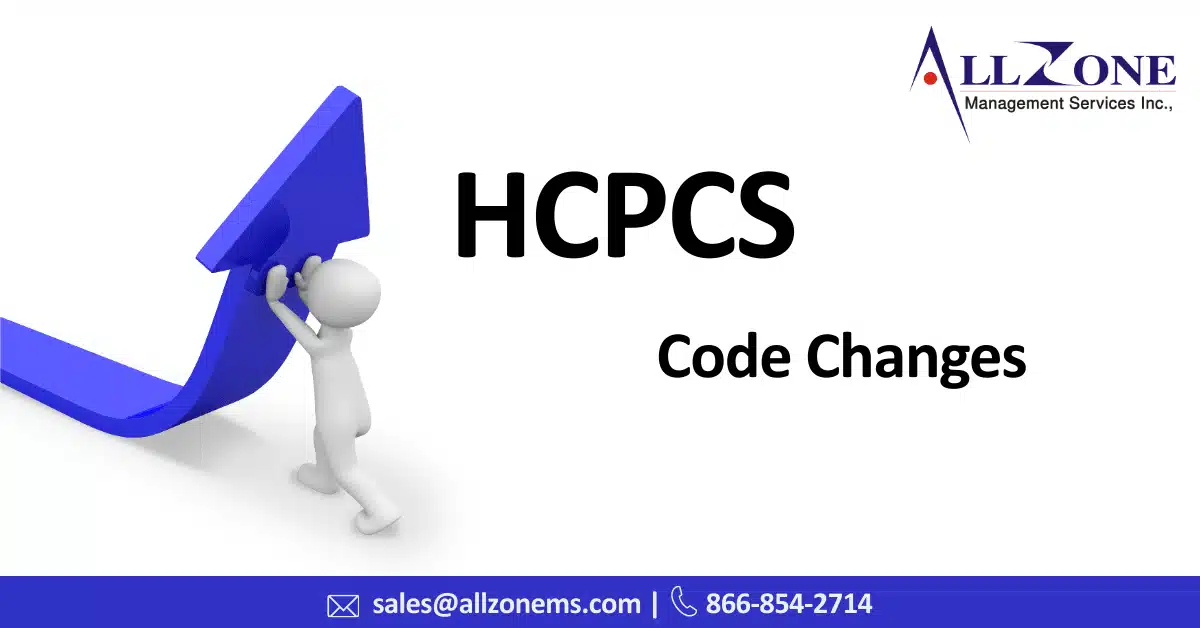The Centers for Medicare & Medicaid Services (CMS) has announced updates to the Q4 HCPCS Level II code, effective October 1, 2024.
These changes include:
- 58 new codes
- 10 codes with updated descriptions
- 6 discontinued codes
Key Changes:
- New codes for medical and surgical supplies, outpatient procedures, durable medical equipment, and orthotic procedures.
- Replacement code for discontinued code C9150.
- 32 new codes for drugs and biologicals.
- Several new temporary (Q) codes.
Note: Codes Q0516-Q0520 for HIV pre-exposure prophylaxis pharmacy supply fees will be effective September 15, 2024.
Q4 HCPCS Level II code: 10 Existing Codes with Long Descriptor Changes:
As of the Q4 HCPCS Level II code that underwent changes to their long descriptors. These changes were likely implemented to improve the clarity, accuracy, and specificity of the codes, ensuring that they accurately reflect the services or supplies they represent.
- A2024: Resolve matrix or xenopatch, per square centimeter
- A4271: Integrated lancing and blood sample testing cartridges for home blood glucose monitor, per 50 tests
- E0739: Rehabilitation system with interactive interface providing active assistance in rehabilitation therapy, including all components and accessories, motors, microprocessors, sensors
- J2251: Injection, midazolam in 0.9% sodium chloride, intravenous, not therapeutically equivalent to J2250, per 1 mg
- J9172: Injection, docetaxel (docivyx), 1 mg
- L1652: Hip orthosis, bilateral thigh cuffs with adjustable abductor spreader bar, adult size, prefabricated, includes fitting and adjustment.
- L1820: Knee orthosis, elastic with condylar pads and joints, with or without patellar control, prefabricated
- Q0516: Pharmacy supplying fee for HIV pre-exposure prophylaxis FDA-approved prescription oral drug, per 30 days
- Q0517: Pharmacy supplying fee for HIV pre-exposure prophylaxis FDA-approved prescription oral drug, per 60 days
- Q0518: Pharmacy supplying fee for HIV pre-exposure prophylaxis FDA-approved prescription oral drug, per 90 days
Payment adjustments have been made for these three codes:
-
- E0736: Transcutaneous tibial nerve stimulator
- E0738: Upper extremity rehabilitation system
- Q5133: Injection, tocilizumab-bavi (tofidence)
Allzone MS- Factors Impacting the Resolution Time of Denied Medical Coding Claims
The time it takes to resolve a denied medical coding claim can vary significantly. Several factors influence the resolution timeline:
-
- Complexity of the issue: Simple errors may be resolved quickly, while complex cases involving multiple diagnoses or procedures can take longer.
- Payer policies: Different payers have varying review processes and timelines. Some may respond more promptly than others.
- Provider’s appeals process: The efficiency of the provider’s appeals process can also affect the resolution time.
- Documentation: The quality and completeness of the medical documentation are crucial. Clear and accurate documentation can expedite the review process.
When working with a reputable medical coding company like Allzone MS, providers can often benefit from faster claim resolution times. These companies have experienced coders who are familiar with complex coding rules, payer guidelines, and efficient appeal processes. By outsourcing their coding to a specialized firm, providers can reduce the administrative burden and focus on delivering quality patient care.
While there’s no definitive timeframe, many providers aim to resolve coding denials within 30 to 60 days. However, in some cases, it may take longer, especially for complex claims or if there are backlogs in the payer’s review process.
It’s important to note that timely resolution of coding denials is essential for maintaining revenue and avoiding penalties. Providers should have a robust appeals process in place and ensure that their coding staff is well-trained and up-to-date on the latest coding guidelines.

